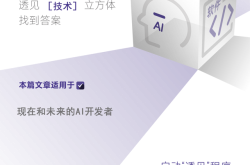Enhancing AI Infrastructure: BDIC's Full-Stack Capabilities Propel Industry Growth
![]() 01/24 2025
01/24 2025
![]() 574
574
The rapid evolution of AI has surged the demand for intelligent computing power, alongside a heightened need for smart computing center infrastructure and software/hardware localization. Data reveals that China's information innovation industry attained a scale of 2,096.19 billion yuan in 2023, with projections to reach 3,701.13 billion yuan by 2027.
At the chip level, over 20 domestic GPU manufacturers have emerged, offering AI chip products across various generations and purposes. However, issues of software-hardware incompatibility require optimization. The "hundred model war" at the model level is intensifying, with basic model producers continually enhancing pre-trained and inference models, while new players in the middle tool layer and AI application layer emerge incessantly. Additionally, the data layer grapples with insufficient data volume in Chinese open-source data, with public and industry data elements dispersed across silos, hindering the development of large AI models. The entire information innovation industry still grapples with challenges like server chips, infrastructure localization, and IT ecosystem construction. BDIC believes that "building a robust AI infrastructure necessitates not only the establishment of the computing power layer but also strategic layouts in algorithms and data services."
Beijing Dianzi Zhishu Technology Co., Ltd. (hereinafter referred to as "BDIC"), a subsidiary of Beijing Electronics Holdings Co., Ltd., is an AI technology enterprise dedicated to original, disruptive, and pioneering technological innovation. Since its inception on August 1, 2023, the company has deployed its comprehensive AI capabilities across computing power, models, and data. BDIC currently boasts five major product matrices, including the "Qianjin? AI Heterogeneous Computing Platform" which facilitates the transition of domestic chips from usable to user-friendly, the "Baota Model Adaptation Platform" offering a premium AI toolchain for model adaptation and computing power acceleration, the "Honghu? Trusted Data Space" promoting secure and trusted data sharing, vertical model matrices catering to the national economy and people's livelihood, and the "Spark? Smart Computing" AI factory encompassing the construction and operation of smart computing centers, accelerating AI implementation. Furthermore, BDIC has undertaken pivotal projects in Beijing, such as the Beijing Digital Economy Computing Power Center and the Advanced Computing Iterative Verification Platform, and has been designated as a key supported enterprise in Beijing's integrated circuit industry and by the Ministry of Industry and Information Technology. The Advanced Computing Iterative Verification Platform has also been approved and included among Beijing's 60 core key projects.
Integrating multiple domestic computing powers to discover efficient, flexible, and cost-effective solutions
Despite the rapid development of domestic high-performance GPU chips, with products from several companies already launched and implemented, there remains a significant performance gap compared to international chip products. It is challenging for a single domestic enterprise to compete with the brand influence and technological R&D capabilities accumulated by international enterprises over the years, underscoring the necessity of constructing smart computing clusters. The computing power of these clusters entails not merely the integration of GPU computing power but the unified scheduling of chips with diverse functions and characteristics, integrating the performance of different chips to explore more efficient, flexible, and cost-effective solutions. BDIC's Qianjin? AI Heterogeneous Computing Platform can integrate and uniformly schedule chips with varying functions and characteristics, distributing computing tasks to different GPUs based on the product performance of different domestic computing powers, enabling specialty chips to leverage their subdivision performance advantages and enhancing the overall efficiency of model training.
With the support of the Qianjin? AI Heterogeneous Computing Platform, users need not delve into the intricacies of the underlying hardware, allowing them to concentrate solely on their tasks. Moreover, computing power charges are based on throughput, ensuring that information innovation customers can enjoy domestic computing power with underlying transparency and price discounts.
Overcoming the "silo problem" with AI toolchains and seamless model switching
From a hierarchical perspective, models are categorized into general basic models, industry-specific basic models, and scenario models, each with their unique strengths. Currently, enterprises prioritize diverse choices, necessitating models to be swiftly switched and deployed across different applications as required. This underscores the influence and leadership of AI products with high flexibility and the ability to adapt to various models in shaping the new direction of AI technology, products, and ecosystems. BDIC's Baota? Model Adaptation Platform can adapt upwards to various software, is compatible with major mainstream development frameworks, and lowers the usage threshold for enterprises and developers. Thanks to the Baota? Model Adaptation Platform, developers can select both mainstream basic large models and open-source models, thereby overcoming the "silo problem" at the algorithm level.

Constructing an interconnected information field to facilitate the full circulation and sharing of data elements
Currently, China faces challenges in obtaining high-quality datasets. Compared to the United States, China's data open-source and market circulation are lacking, data element mining and governance capabilities are lagging, and high-quality Chinese datasets remain scarce, with a substantial amount of unstructured data unusable for algorithm model training. To address this, BDIC employs cutting-edge technologies and multi-level solutions such as privacy computing, model hierarchical computing, digital sandboxes, and blockchain evidence storage to build the "Honghu? Trusted Data Space." The Honghu? Trusted Data Space ensures the trustworthiness, controllability, usability, and auditability of data elements, effectively mitigating compliance risks and technical challenges like data security, privacy protection, and limited data openness, thereby enabling the trusted development and utilization of data elements.
Confronting the current "silo problem" across computing power, algorithms, and data levels, BDIC has proposed effective solutions, underpinned by a forward-looking strategic vision and profound technical expertise. As a pivotal force driving the high-quality development of China's AI industry, BDIC will continue to uphold its mission of "building a digital China" in the future, dedicated to accelerating the advent of the next generation of the industrial revolution in China with future-oriented AI computing infrastructure and AI productivity engines, creating a model for new-type productivity in state-owned enterprises.








